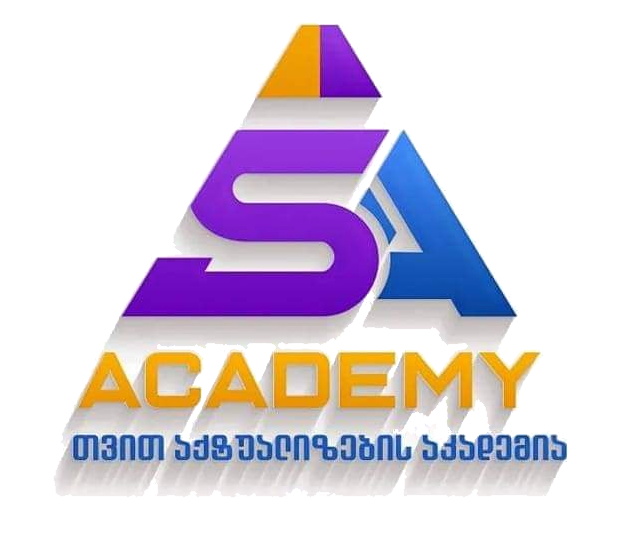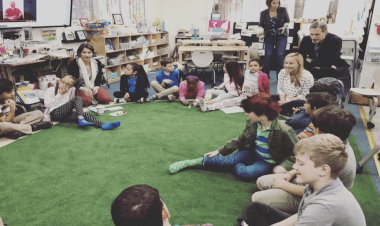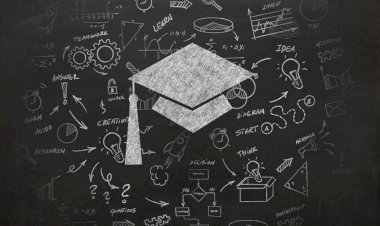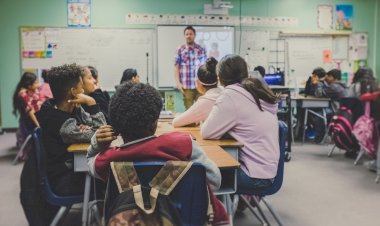The Role of the Education in Acquiring the Knowledge of Human Rights
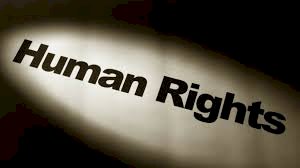
The Role of the Education in Acquiring the Knowledge of Human Rights
Authors: Nana Aleksidze
Abstract
Education is a primary need in this era of globalization. Education not only gives insight, it also grooms the personality, sophisticates moral values, adds knowledge and gives skill. Education encompasses all activities by which a human group transmits to its descendants a body of knowledge and skills and a moral code which enable that group to subsist, education gives the younger generation the skills necessary to effectively undertake the tasks of daily living with the inculcation of the social, cultural, religious and philosophical values held by the particular community.
Keywords: Education, knowledge, human rights.
Introduction
U.N.E.S.C.O. has defined the term ‘education’ to mean “all types and levels of [formal] education, including the access to education, the standard and quality of education, and the conditions under which it is given”. According to The European Court of Human Rights, education in the wider sense refers to the whole process whereby, in any society, adults endeavor to transmit their beliefs, culture and other values to the young, whereas teaching or instruction refers in particular to the transmission of knowledge and to intellectual development.
Problem Statement
The limited initial application of human rights education excluded the majority of the population: adults who had finished school or those who had never had the opportunity to attend. However, the rise of human rights activism in the 1960s and 1970s brought with it a growing recognition of the potential of the human rights framework to effect social change and the importance of human rights awareness for all segments of society.
Furthermore, as economic integration and advancement in communications have brought all parts of the world closer together, human rights are increasingly recognized as a unifying moral force that transcends national boundaries and empowers ordinary people everywhere to demand that their governments be account able for the protection and promotion of their human rights. This new awareness is not limited to educated elites or developed countries. Around the globe, grass-roots organizations of all kinds are using the human rights framework to advocate for social change, for example opposing violence against women, toxic dumping, child labor, and lack of housing or health care as human rights violations.
As a result, these groups are providing innovative human rights education to the communities they serve—the poor, refugees and immigrants, indigenous peoples, gays and lesbians, rural and migrant peoples, and minorities of all kinds. They have effectively redefined human rights education in the process.
The Right to Know Your Rights: The mandate for human rights education is unequivocal: you have a human right to know your rights.
Main Conception:
Education should be a means to empower children and adults to become active participants in the transformation of their societies. Learning should also focus on the values, attitudes and behaviors which enable individuals to learn to live together in a world characterized by diversity and pluralism.
Through the person oriented education learners can get answers to the questions what is their rights, responsibilities towards the society , how can they protect their and others’ fundamental rights, world’s ensure harmony and peace, how can they achieve the condition of self- realization, become the decent citizen and active member of the society.
Human rights education aims to build an understanding and appreciation for human rights through learning about rights and learning through rights. Human rights education is inextricably linked with the pedagogy of teaching. It requires not just imparting knowledge about human rights but also applying a human rights-based pedagogy to ensure young people learn in a rights-respecting environment – an environment that respects their rights and promotes the rights of others.
In 1960, UNESCO adopted the Convention against Discrimination in Education, which acknowledges the crucial role of education in ensuring equality of opportunity for members of all racial, national or ethnic groups. It was the very first time that a binding instrument in the United Nations system contained a detailed definition of the term DISCRIMINATION.
The fundamental questions of high importance are considered to be:
- What are Human Rights?
- Why are Human Rights so important?
- Are Human Rights universally defined?
- Are Human Rights enforced?
- What positive outcomes do Human Rights give to the world’s globalized society?
Discussions
What are the fundamental Human Rights?
Human rights are the basic freedoms and protections that all people are entitled to. They are rights that we all have whatever our nationality, place of residence, sex, national or ethnic origin, color, religion, language, sexual orientation or any other status. We are all equally entitled to our human rights without discrimination. These rights are all related to one another, dependent upon one another and indivisible from one another.
Why are Human Rights So Important?
The table below encompasses the main capabilities of the Human Rights:
Human dignity Human dignity affirms that all people deserve to be respected simply because they are human beings. Regardless of age, culture, religion, ethic origin, color, sex, sexual orientation, language, ability, social status, civil status or political convictions, all individuals deserve respect.
Universality Human rights are fundamental rights that belong to every person simply because they are a human being. Human rights are based on the principle that every human being is born equal in dignity and rights. All human rights are equally important and they should not be taken away under any circumstances.
Equality and nondiscrimination Equality affirms that all human beings are born free and equal. Equality presupposes that all individuals have the same rights and deserve the same level of respect. All people have the right to be treated equally. Sometimes it may be necessary to treat people differently to achieve equality. This is because differences between people may make it difficult for them to enjoy their rights without support. For example, everyone may have the right to employment but without accessible transport and facilities for people with physical disabilities, they may not be able to enjoy this right. Non-discrimination is an integral part of the principle of equality. It ensures that no one is denied their rights because of factors such as age, ethic origin, sex, etc. The failure to account for differences between people with a view to ensuring that everyone is able to enjoy their rights may also be discriminatory.
Respect and responsibility
Human rights entail both rights and obligations. Respect is recognizing that every person is important and must be treated with dignity. In the context of human rights, respect does not need to be earned; it is the right of every person in all circumstances. It includes recognizing and appreciating differences between people. Responsibility means that we need to also respect the human rights of others. All people have human rights and we all have a responsibility to respect the rights of others.
Accountability The government is accountable to all people and all people are able to enjoy their human rights.
Participation Everybody has the right to participate fully and on an equal basis with others in all areas of life. Full and equal participation enables everyone to reach their full potential.
Now, therefore, THE GENERAL ASSEMBLY proclaims this Universal Declaration of Human Rights as a common standard of achievement for all peoples and all nations, to the end that every individual and every organ of society, keeping this Declaration constantly in mind, shall strive by teaching and education to promote respect for these rights and freedoms.
Are Human Rights Enforced? The answer to this question greatly connected to the question of how Human Rights can be enforced. Of course there are quite many ways and means of implementing this kind of activity but we can’t avoid mentioning the high role of the education in this sense.
What is Human Rights education? The mandate for human rights education is unequivocal: you have a human right to know your rights. The Preamble to the Universal Declaration of Human Rights (UDHR) exhorts "every individual and every organ of society" to "strive by teaching and education to promote respect for these rights and freedoms." Article 30 of the UDHR declares that one goal of education should be "the strengthening of respect for human rights and fundamental freedoms." According to the International Covenant on Civil and Political Rights (ICCPR), a government "may not stand in the way of people's learning about [their rights]."
Human rights education aims to build an understanding and appreciation for human rights through learning about rights and learning through rights. Human rights education is inextricably linked with the pedagogy of teaching. It requires not just imparting knowledge about human rights but also applying a human rights-based pedagogy to ensure young people learn in a rights-respecting environment – an environment that respects their rights and promotes the rights of others.
There are three main elements of human rights education:
- First, the acquisition of knowledge and skills about human rights
- Second, the development of respectful values and attitudes and changed behavior that reflects human rights values
III. Third, the motivation of social action and empowerment of active citizenship to advance respect for the rights of all.
Human rights education encourages using human rights as a frame of reference in our relationships with others. It encourages inquiry, forming arguments, deciding, cooperating, evaluating, sharing and living according to values. Human rights education encourages us to critically examine our own attitudes and behaviors and, ultimately, to transform them in order to advance respect for the rights of all.
This kind of education benefits in:
- Declaring a commitment to those human rights expressed in the Universal Declaration of Human Rights
- Promoting democratic principles. It examines human rights issues without bias and from diverse perspectives through a variety of educational practices.
- Helping to develop the communication skills and informed critical thinking essentialto a democracy. It provides multicultural and historical perspectives on the universal struggle for justice and dignity.
- Engaging the heart as well as the mind. It challenges students to ask what human rights mean to them personally and encourages them to translate caring into informed, nonviolent action.
- Affirming the interdependence of the human family. It promotes understanding of the complex global forces that create abuses, as well as the ways in which abuses can be abolished and avoided.
What is the aim of Human Rights Education?
The Plan of Action for the Decade further defines human rights education as "training, dissemination and information efforts aimed at the building of a universal culture of human rights through the imparting of knowledge and skills and the molding of attitudes which are directed to:
- a) The strengthening of respect for human rights and fundamental freedoms;
- b) The full development of the human personality and the sense of its dignity;
- c) The promotion of understanding, tolerance, gender equality, and friendship among all nations, indigenous peoples and racial, national, ethnic, religious and linguistic groups;
- d) The enabling of all persons to participate effectively in a free society;
- e) The furtherance of the activities of the United Nations for the maintenance of peace.
What are the suggested recommendations for maintaining the proper process of
Human Rights Education?
- Choosing the right and tailored method of teaching and learning
- Selecting the proper material with an accord to the problem, environment, interest and actuality.
- Implementing the mixed and suitable curriculum for teaching
- The curriculum should be age-appropriate and take into account diverse learner needs and backgrounds (OSCE/ODIHR, 2012).
- Practitioners should adapt the curriculum to the learners’ needs and should regularly update the curriculum to ensure relevance (OSCE/ODIHR, 2012).
- Cooperating systematically with people in charge: educators, learners, parents and authority
- Maintaining the process as activity centered, participatory, dialectical, analytical, healing, strategic thinking-oriented, goal and action-oriented, and problem-posing
- Encouraging students to be ready for challenging their prior assumptions (Tibbitts & Fernekes, 2011)
- Class activities should be based on debate, choice, and creativity (Tibbitts & Fernekes, 2011; Osler & Starkey, 2010).
- Human rights education should be accessible to all, especially to those who are particularly vulnerable to human rights abuses such as students with disabilities, marginalized groups, or individuals from less-privileged socio-economic backgrounds.
What are the positive outcomes of Human Rights Education?
- Children’s attitudes, ideas and characters are formed at a young age and these are heavily influenced by their environment, including their school education. Human rights education in school is an effective means to assist children to incorporate human rights values into their attitudes and behaviors
- Assisting young people to incorporate these values into their daily lives is a concrete way to prevent bullying, discrimination and promote inclusion and respect for diversity.
- Human rights provide a valuable framework for good inter-personal relations and for making informed and proportionate decisions – from the playground to government and public policy, it starts with human rights education in schools.
- Creating a society where all human rights are respected and promoted must start with human rights education in school.
- A ‘human rights respecting culture’ seeks to embed respect and responsibility for the realization of rights through all levels of society. Human rights education is about fostering a rights respecting culture – where human rights become integrated in society at many levels, both personal and institutional.
What are those “Musts” to be implemented?
- At the national level the Framework affirms the government’s commitment to deliver human rights education in primary and secondary schools – “developing an understanding of rights and responsibilities, including human rights, will be an integral part of curriculum development.
- Understanding human rights principles and recognizing human rights violations.
- Demonstrating attitudes and behaviors that are consistent with human rights principles
- Analyzing a situation from a human rights perspective, identifying what steps one would need to take to ensure that the human rights of all people are respected and taking action to advance human rights.
- Developing the skills to apply human rights in different situations and address problems from a human rights perspective involves being able to understand human rights on a practical level and adopt human rights perspectives and behavior
After implementing those steps:
- Students will develop the skills of understanding and respecting the equal value of all people regardless of differences; understanding how to ensure that all people are included and not discriminated against because of differences; how to recognize and address human rights concerns; and generate a desire and capacity to ensure human rights values and principles are upheld throughout society.
- Students will maintain the human rights understanding, develop their own self awareness, understanding of their relationship to others, society, the world, knowledge of social issues locally, nationally and globally and their cognitive capacities.
- Students will also be able to recognize violations of these principles and through this gain an appreciation for the value of respecting human rights.
- Students will recognize human rights violations and build skills, behavior and attitudes to address human rights concerns and respect human rights in all aspects of their lives and relationships with others.
“Specifically, human rights education in the formal education system seeks to prompt social change through creating a cultural climate paving “the way for a world that respects human rights through an awareness of and commitment to the normative goals laid out in the Universal Declaration and other key documents” (Tibbitts, 2002, p.
163)”. “Every individual and every organ of society…shall strive by teaching and education to promote respect for these rights and freedoms” … (United Nations 1948) “The role of citizenship education becomes very important particularly in terms of developing appropriate ways of thought, judgment and action, acquiring and consolidating a culture of consciousness that allows the maintenance of socialcohesion in the knowledge base, respect, acceptance, tolerance of cultural differences (Karakatsanis, 2003)”. “However useful and indispensable for teachers the question‐answer technique efficiently used in this class may be, it proves inadequate in creating the heated debates suitable for such topics open to discussion as human rights (Kesten, 2014)
Conclusion
Human rights activism brought with it a growing recognition of the potential of the human rights framework to effect social change and the importance of human rightsawareness for all segments of society. Furthermore, as economic integration and advancement in communications have brought all parts of the world closer together, human rights are increasingly recognized as a unifying moral force that transcends national boundaries and empowers ordinary people everywhere to demand that their governments be account able for the protection and promotion of their human rights. Since the adoption of the Universal Declaration, the United Nations General Assembly has called on Member States and all segments of society to disseminate and educate about this fundamental document. In 1993 the World Conference on Human Rights in Vienna reaffirmed the importance of human rights education, training and public information, declaring it "essential for the promotion and achievement of stable and harmonious relations among communities and for fostering mutual understanding, tolerance and peace."
References
UNESCO 1960 Convention, http://www.unesco.org/new/en/social-and-humansciences/
themes/fight-against-discrimination/role-of-education/
Peace Resource Center; Introduction To Human Rights Education( 1991),
http://hrlibrary.umn.edu/peace/peaceedu/binder2.html
Human Rights Resource Center, University of Minnesota(1995-2004),
http://hrlibrary.umn.edu/edumat/hreduseries/hrhandbook/part1B.html
Monteir, A., M., & Tavares, S., M., The Role of Human Rights Education in the
Formation of an Active Citizenry,
https://scholarworks.iu.edu/journals/index.php/ried/article/view/619
Nica Froman Teachers College, Columbia University, Human Rights Education and
the International Baccalaureate Diploma Programme,
http://files.eric.ed.gov/fulltext/EJ1061017.pdf
Sounoglou1, M., & Michalopoulou1, A., (2017), Early Childhood Education
Curricula: Human Rights and Citizenship in Early Childhood Education, Journal of
Education and Learning,
https://eric.ed.gov/?q=education+and+human+rights&pr=on&ft=on
Kesten, A., (2014), Teaching Human Rights in Turkey: Commentaries on a Single
Lesson from
MultiplePerspectives,JournalofEducationandLearning,http://files.eric.ed.gov/fulltext/
EJ1101903.pdf
Source from
https://drive.google.com/file/d/1AB3L7Hs6SauLV04acXN_aIStjbL6Xx7u/view
https://ibsu.edu.ge/research/en/proceedings/46
12th International Silk Road Conference on Contemporary Challenges of Democracy and Human Rights through Politics and Security, ISBN 978-9941-8-1037-4
